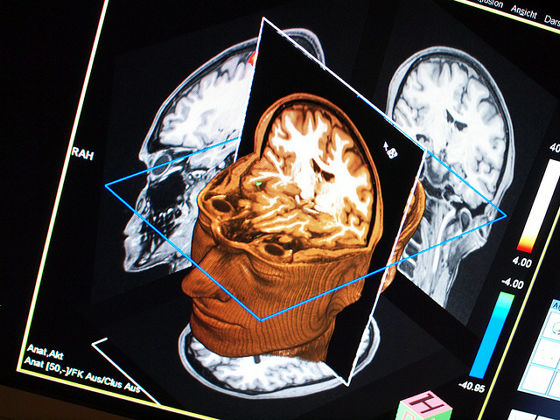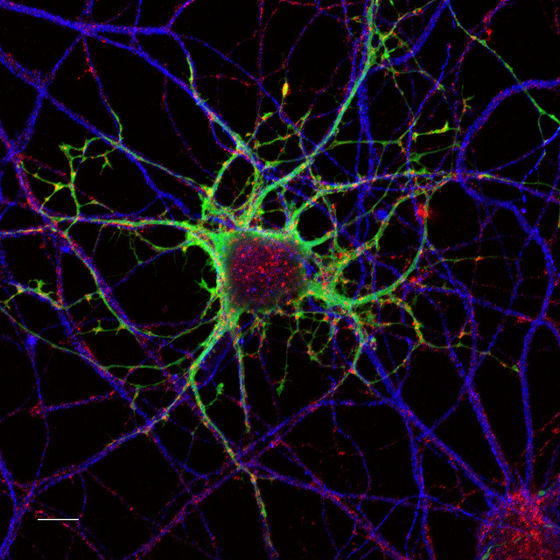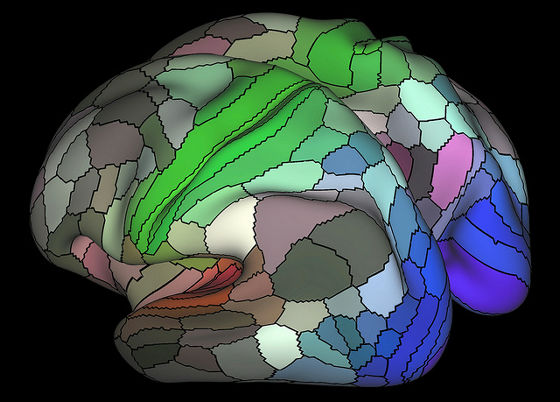It turns out that whether it is "type that can be moved with music" depends on the activity of cooperation in the brain region

ByNickolai Kashirin
Even if you listen to the same music, there are people who are strongly moved, but as people have nothing, the reaction varies from person to person. It is often explained as "difference in sensitivity" in the background, but from the results of the research investigating the work in the brain, we know that there is a difference in brain function itself.
Neural correlates of specific musical anhedonia
http://www.pnas.org/content/early/2016/10/28/1611211113
Failure to communicate in the brain may be behind indifference to music | Ars Technica
http://arstechnica.com/science/2016/11/reward-centers-dont-hear-the-auditory-system-in-people-who-dont-like-music/
Studies conducted in the past using "neuroimaging" to visualize nerves in the brain have shown that the pleasure obtained by listening to music is related to the interaction of the brain's auditory system and the reward system I knew. And this time, the research team of University of Barcelona, Noelia Martínez-Molina et al. Further clarified that those who can not get pleasurable by the music have low activity of the two parts in the brain that arise when listening to music It is.
The research team gathered 15 participants in each of the three groups "people who are interested in music" and "people who react normally to music" and "people who are strongly moved by music", and blood flow in the brain VisualizeFMRI(Magnetic Resonance Function Imaging Method), we have verified the brain function when actually listening to music. In addition, in order to eliminate the result bias, participants did not include musicians who are training music.

ByArs Electronica
Participants in each group were first asked to prepare two songs of instrumental songs (songs without songs) that each individual felt as "emotionally pleasing". This, of course, is not an easy task for those who are not interested in music. Next, the research team collected similar songs using the music matching algorithm of the music streaming service "Spotify" to complement the songs that were brought back. And the research team analyzed the activities of the brain when listening to these songs and when performing "traditional reward-like activities" such as gambling, using fMRI.
As a result, it is believed that when a person not interested in music listens to music, it plays a role in the part including the auditory system and the reward system, especially in the reward system in the brainNucleus accumbensIt was found that the blood flow rate in the group was lower than in other groups. On the other hand, when doing 'traditional reward-like activities' there is no noticeable difference with other groups, this situation is not caused by the failure of brain function, music For people who do not show interest in, it is highlighting that the music itself is not "echoing".

ByZEISS Microscopy
As mentioned above, the research team thought that this cause may be due to brain dysfunction, as it has been confirmed that there is a difference in the amount of activity among the groups. Specifically, it is a hypothesis that the connection ability of the part which interprets music in the brain and the connection part which connects the reward system is originally low, but in order to verify this hypothesis, the research team is going to I checked whether there is a strong relationship in the site.
As a result, those who are not interested in music have revealed that "functional connectivity" of these parts is weak. Functional connectivity is not a physical cerebral neuronal cell connection but a connection between parts of the brain that occurs when receiving a specific stimulus and by looking at the strength of the brain's response to a certain stimulus, You can see how that person's brain responds.

ByNIH Image Gallery
From this result, it was found that in the brains of people who are not interested in music, the reactions of the parts such as the upper temporal gyrus and ventral striatum, nucleus accumbens are lower for other group members. About this result, the research team says that in the brain of a person who can not obtain pleasure and impression by listening to music, it shows that there is little transmission of the reward system of the auditory cortex and the midbrain marginal system.

ByIlya Tararov
Related Posts:
in Science, Posted by darkhorse_log







